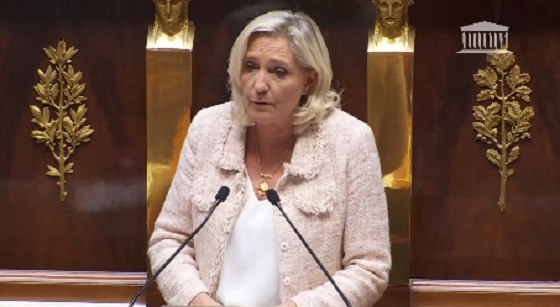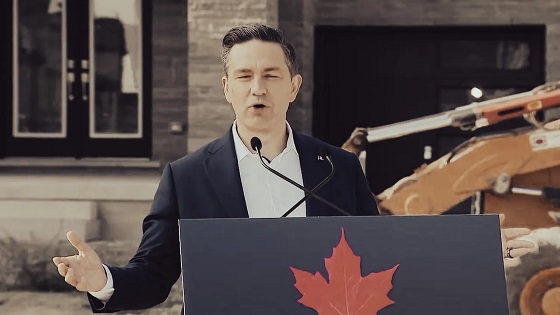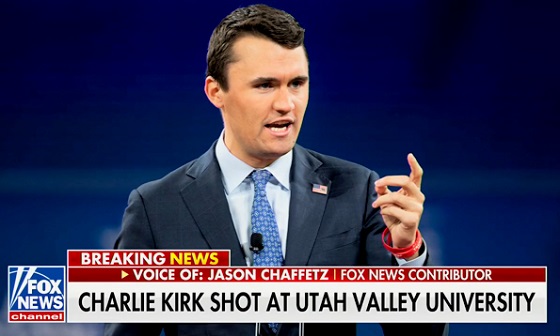Business
The “GST Holiday”… A Smokescreen For Scandal
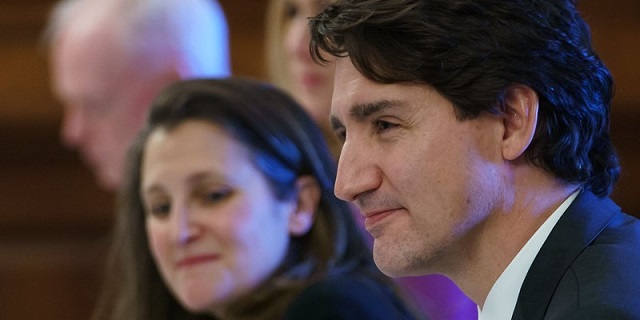
A GST holiday sounded like it might be a good thing, but it turned out to be a gimmick to distract us from more serious issues, writes Marco Navarro-Genie. Courtesy Ivanoh Demers/Radio-Canada
One more racket from a government that rules by racket
The Prime Minister’s proposed GST holiday and $250 rebate scheme, initially estimated at $6.2 billion, is yet another calculated ploy to distract Canadians from the ethical failures of his government. Though the rebate portion was abandoned in Parliament, the GST holiday remains a superficial gesture in a government-induced affordability crisis.
This tactic highlights the government’s willingness to appear generous (with our money) while burdening taxpayers with increased debt to mask corruption and maintain power.
At the heart of this deflection lies the Sustainable Development Technology Canada (SDTC) program, dubbed by critics as the “Green Slush Fund.”
The Auditor General recently revealed shocking improprieties within the program. The findings include that the federal ethics office reported at least 90 violations of ethics rules and nearly $400 million handed out to companies linked to SDTC board members. This gross misuse of public funds undermines the program’s goals of fostering green innovation, instead solidifying public skepticism about Ottawa’s ethical compass.
Efforts to hold the government accountable for its mismanagement have faced significant obstruction. Parliament has requested unredacted documents related to the scandal but has been met with resistance from the government. Trudeau’s administration has provided vague justifications for its refusal to comply, citing reasons such as protecting commercial confidentiality and national security.
The Speaker of the House, a Liberal MP, ruled that Parliament has the constitutional right to demand these documents. He ordered the government to release them unredacted. However, weeks have now passed, and the government continues its obstructionist tactics. Parliament has been stalled for weeks, effectively freezing legislative proceedings.
Under parliamentary rules, the House can halt all proceedings until the government complies with the Speaker’s ruling. However, the Speaker lacks direct enforcement power, leaving the opposition parties to hold the line. Last week, the government attempted to submit documents but presented them in a heavily redacted form, further eroding trust.
The standoff highlights the lengths the federal government will go to avoid transparency. By refusing to release the documents, the Liberals undermine Parliament’s authority and delay critical legislative work to protect themselves from scrutiny.
The two-month GST holiday passed with NDP support, removes the GST/HST from:
- Prepared foods: Items like pre-made meals and restaurant dining.
- Children’s essentials: Clothing, footwear, and diapers.
- Select gift items: Categories remain vaguely defined.
However, basic groceries are already GST-exempt. According to food policy expert Sylvain Charlebois, the average Canadian household will save only a few dollars. This gesture is hardly a windfall in the context of surging inflation and housing costs — driven mainly by the government’s policies.
The fundamental aim of the GST holiday is not economic relief but political manipulation. By framing the Conservatives’ refusal to pass the broader $6.2 billion package as heartless, the government seeks to paint the Official Opposition as the Grinch who stole Christmas.
Liberal MPs have already taken to social media to attack the Conservatives for “denying Canadians a tax break.”
The government seems silent about the fact that the Bloc Quebecois also voted against the tax gimmick. Meanwhile, the NDP has shown a willingness to facilitate this naked vote-buying bid, further eroding its credibility as an opposition party.
The Conservatives have remained steadfast, demanding full transparency on the SDTC scandal before regular proceedings in the House can resume. This stance, however, has allowed the Liberals to weaponize affordability relief as a wedge issue.
The GST holiday’s costs, like most federal spending under this government, will disproportionately fall on Alberta, Saskatchewan, and British Columbia. These three provinces already bear the brunt of federal revenue extraction through resource wealth, only to see their contributions funnelled into vote-rich areas of central Canada to prop up an increasingly unpopular government. The move further stokes resentment in the West, damaging national unity.
How this standoff will resolve is anyone’s guess. The government appears content to drag its feet, betting that public fatigue will weaken opposition resolve. Yet it remains clear that Liberals are willing to misspend billions in borrowed money to hide how they’ve misused hundreds of millions on partisan rewards and cronies. This cynical strategy prioritizes the political survival of their arrangement with the NDP over fiscal responsibility and democratic accountability.
For democracy to function, Parliament must assert its supremacy, hold this minority government to account, and ensure transparency in the face of systemic corruption and mismanagement. The NDP’s collaboration with the offenders may make it impossible, however. Allowing the government to defy Parliament and the Speaker’s ruling sets a dangerous precedent, weakening the foundations of Canadian democracy.
Marco Navarro-Genie is VP Policy and Research at the Frontier Centre for Public Policy. He is co-author, with Barry Cooper, of COVID-19: The Politics of a Pandemic Moral Panic (2020).
Alberta
Alberta updates TIER system: Businesses can direct compliance payments to on-site technologies
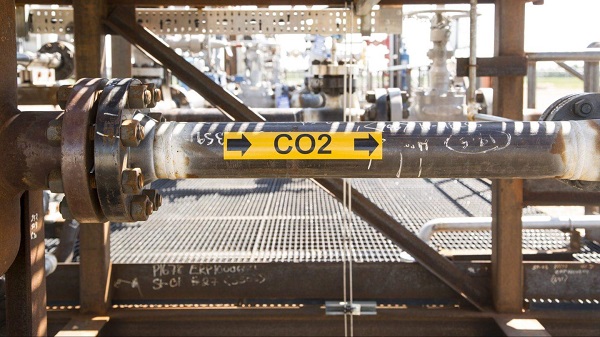
Modernizing TIER to secure tomorrow |
Alberta is seeking to update the Technology Innovation and Emissions Reduction (TIER) system to drive investment at large industrial facilities, helping companies stay competitive and protecting jobs.
This fall, Alberta’s government will introduce updates to the TIER system that would empower Alberta industries to invest in on-site emissions reduction technology that works for their specific businesses. Making Alberta’s highly successful TIER system even more effective and flexible will make industries more globally competitive while maintaining Alberta’s leadership in emissions reductions.
“TIER has always been about Alberta leading the way – proving to the world that it’s possible to increase energy production, grow the economy and lower emissions at the same time. These amendments build on that success by giving industry the certainty and flexibility they need to invest right here at home. We know this work is not finished. We will continue to press the federal government to match Alberta’s leadership with realistic policies and timelines so that together we can keep building an economy that is strong and ready for the future.”
“We are committed to ensuring our industry remains competitive and can once again bring in the capital investment needed to deliver safe, affordable and reliable energy to Canadians and the rest of the world. Enabling them to reinvest their dollars into their own facilities will be good for the environment while growing our economy and creating jobs.”
“TIER has played a critical role in helping Alberta energy be the most responsibly produced energy in the world. These changes will further allow our major energy companies to increase production and finance new world-leading emission reduction efforts consistent with Alberta’s Emissions Reduction and Energy Development Plan.”
Proposed updates to the TIER system include:
- Recognizing on-site emissions reduction investments as a new way for industry to comply with the TIER system in addition to the current options available, which include paying into the TIER fund or buying credits. This would reward companies for investing directly in emissions reduction technology that encourages innovation, supports local jobs and reduces emissions.
- Allowing smaller facilities that currently participate in the TIER system to leave or opt out for 2025 to reduce costs and red tape. Smaller facilities below the regulatory emissions threshold can face disproportionate compliance costs under the TIER system, which is mainly designed for large facilities. This change would help smaller industries save money and redirect resources into emissions reduction investments or other operational improvements for more cost savings. It offers flexibility, especially for small manufacturers and rural operations, which protects jobs across Alberta.
These changes will position Alberta, once again, as a world leader ready to meet the challenges and realities of shifting global markets, increased competition and trade uncertainty.
“We are pleased to see the Government of Alberta is taking steps to improve competitiveness of climate policy. Today’s announcement recognizes industry concerns around competitiveness and signals that the province is moving forward to support emissions reduction in a way that helps companies reduce emissions, compete for investment, and create jobs for Albertans. EPAC believes provinces are best positioned to lead on climate policy, and we look forward to continued work with Alberta.”
“Pathways Alliance appreciates the Government of Alberta’s efforts to support the oil sands industry and protect jobs. Direct investment through the TIER system is expected to encourage continued investment in emission reduction technologies, and advance innovative infrastructure. The oil sands industry looks forward to ongoing work with governments to strengthen global competitiveness and attract investment.”
Alberta’s economy is growing and emissions are declining thanks to the province’s common-sense approach. Alberta’s government will continue to work with industry to protect jobs, strengthen competitiveness and maintain Alberta’s position as the destination of choice for global investment.
Quick facts
- Alberta’s TIER system was established in 2007 and was the first of its kind in North America.
- Currently the TIER system includes about 60 per cent of the province’s total emissions, helping Alberta’s industrial facilities find innovative ways to reduce emissions and invest in technology to stay competitive, save money and create jobs.
- The TIER Regulation requires any facility that emits 100,000 tonnes or more of emissions in a year to meet annual emissions reductions using either a facility-specific or a sector benchmark approach.
- Under the current system, regulated facilities can comply using credits (carbon offsets, emission performance credits or sequestration tonnes) or pay into the TIER fund at $95 per tonne of emissions.
- Sectors regulated under the TIER system include oil and gas, oil sands mining, electricity, forestry, chemicals, fertilizers, minerals, food processing and waste.
- Since 2019, Alberta has invested $1.6 billion from the TIER fund into geothermal, hydrogen, energy storage, methane reduction, carbon capture and other technology projects, reducing approximately 70 million tonnes of emissions by 2030 and supporting about 21,000 jobs across the province.
Related information
2025 Federal Election
Post election report indicates Canadian elections are becoming harder to secure

Chief Electoral Officer Stéphane Perrault highlights strong participation and secure voting, but admits minority politics, rising costs, and administrative pressures are testing the system’s limits.
Monday in Ottawa, Stéphane Perrault, Canada’s Chief Electoral Officer, delivered a long press conference on April’s federal election. It was supposed to be a victory lap, record turnout, record early voting, a secure process. But if you listened closely, you heard something else: an admission that Canada’s election machinery is faltering, stretched thin by a system politicians refuse to fix.
Perrault touted the highest turnout in 30 years, 69 percent of eligible voters, nearly 20 million Canadians. Almost half of those ballots were cast before election day, a dramatic shift in how citizens take part in democracy.
“Twenty years ago, less than 7% voted early. This year, nearly half did,” Perrault told reporters. “Our system may have reached its limit.”
That’s the core problem. The system was built for one decisive day, not weeks of advance voting spread across campuses, long-term care homes, mail-in ballots, and local Elections Canada offices. It’s no longer a single event; it’s an extended process that stretches the capacity of staff, polling locations, and administration.
Perrault admitted bluntly that the 36-day writ period, the time between when an election is called and when the vote happens, may no longer be workable. “If we don’t have a fixed date election, the current time frame does not allow for the kind of service preparations that is required,” he said.
And this is where politics collides with logistics. Canada is once again under a minority government, which means an election can be triggered at almost any moment. A non-confidence vote in the House of Commons, where opposition parties withdraw support from the government, can bring down Parliament in an instant. That’s not a flaw in the system; it’s how parliamentary democracy works. But it leaves Elections Canada on permanent standby, forced to prepare for a snap election without knowing when the writ will drop.
The result? Sixty percent of voter information cards were mailed late this year because Elections Canada couldn’t finalize leases for polling stations on time. Imagine that, more than half the country got their voting information delayed because the system is clogged. And that’s when everything is supposedly working.
The April election cost an estimated $570 million, almost identical to 2021 in today’s dollars. But here’s the kicker: Elections Canada also spent $203 million just to stay ready during three years of minority Parliament. That’s not democracy on the cheap. That’s bureaucracy on retainer.
Perrault admitted as much: “We had a much longer readiness period. That’s the reality of minority governments.”
No Foreign Interference… But Plenty of ‘Misinformation’
Canada’s top election official wanted to make something perfectly clear: “There were no acts of foreign interference targeting the administration of the electoral process.” That’s the line. And it’s a good one… reassuring, simple, the kind of phrase meant to make headlines and calm nerves.
But listen closely to the wording. He didn’t say there was no interference at all. He said none of it targeted the administration of the vote. Which raises the obvious question: what interference did occur, and who was behind it?
Perrault admitted there was “more volume than ever” of misinformation circulating during the 2025 election. He listed the greatest hits: rumors that Elections Canada gives voters pencils so ballots can be erased, or claims that non-citizens were voting. These are hardly new — they’ve appeared in the U.S. and in Europe too. The difference, he said, is scale. In 2025, Canadians saw those narratives across more channels, more platforms, more communities than ever before.
This is where things get interesting. Because the way Perrault framed it wasn’t that a rogue actor or a foreign intelligence service was pushing disinformation. He was blunt: this was a domestic problem as much as anything else. In his words, “whether foreign or not,” manipulation of information poses the “single biggest risk to our democracy.”
Perrault insists the real danger isn’t foreign hackers or ballot-stuffing but Canadians themselves, ordinary people raising questions online. “Information manipulation, whether foreign or not, poses the single biggest risk to our democracy,” he said.
Well, maybe he should look in the mirror. If Canadians are skeptical of the system, maybe it’s because the people running it haven’t done enough to earn their trust. It took years for Ottawa to even acknowledge the obvious , that foreign actors were meddling in our politics long before this election. Endless commissions and closed-door reports later, we’re told to stop asking questions and accept that everything is secure.
Meanwhile, what gets fast-tracked? Not a comprehensive fix to protect our democracy, but a criminal investigation into a journalist. Keean Bexte, co-founder of JUNO News, is facing prosecution under Section 91(1) of the Canada Elections Act for his reporting on allegations against Liberal candidate Thomas Keeper. The maximum penalty? A $50,000 fine and up to five years in prison. His reporting, incidentally, was sourced, corroborated, and so credible that the Liberal Party quietly dropped Keeper from its candidate list.
If people doubt the system, it isn’t because they’re gullible or “misinformed.” It’s because the government has treated transparency as an afterthought and accountability as an inconvenience. And Perrault knows it. Canadians aren’t children to be scolded for asking questions, they’re citizens who expect straight answers.
But instead of fixing the cracks in the system, Ottawa points the finger at the public. Instead of rebuilding trust, they prosecute journalists.
You don’t restore faith in democracy by threatening reporters with five years in prison. You do it by showing, quickly and openly, that elections are beyond reproach. Until then, spare us the lectures about “misinformation.” Canadians can see exactly where the problem lies, and it isn’t with them.
The Takeaway
Of course, they’re patting themselves on the back. Record turnout, no servers hacked, the trains ran mostly on time. Fine. But what they don’t want to admit is that the system barely held together. It was propped up by 230,000 temporary workers, leases signed at the last minute, and hundreds of millions spent just to keep the lights on. That’s not stability. That’s triage.
And then there’s the lecturing tone. Perrault tells us the real threat isn’t incompetence in Ottawa, it’s you, Canadians “sharing misinformation.” Excuse me? Canadians asking questions about their elections aren’t a threat to democracy, they are democracy. If the government can’t handle people poking holes in its story, maybe the problem isn’t the questions, maybe it’s the answers.
So yes, on paper, the 2025 election looked like a triumph. But listen closely and you hear the sound of a system cracking under pressure, led by officials more interested in controlling the narrative than earning your trust. And when the people running your elections think the real danger is the voters themselves? That’s when you know the elastic isn’t just stretched. It’s about to snap.
Subscribe to The Opposition with Dan Knight .
For the full experience, upgrade your subscription.
-
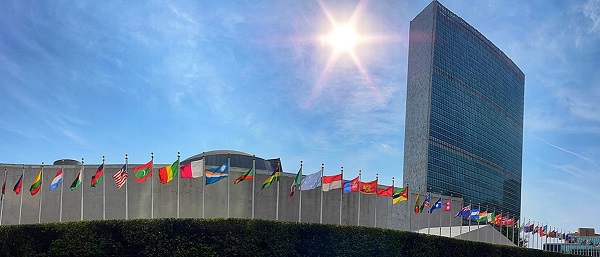
 Daily Caller2 days ago
Daily Caller2 days agoTrump Admin To Push UN Overhaul Of ‘Haphazard And Chaotic’ Refugee Policy
-

 Artificial Intelligence2 days ago
Artificial Intelligence2 days agoWhat are data centers and why do they matter?
-
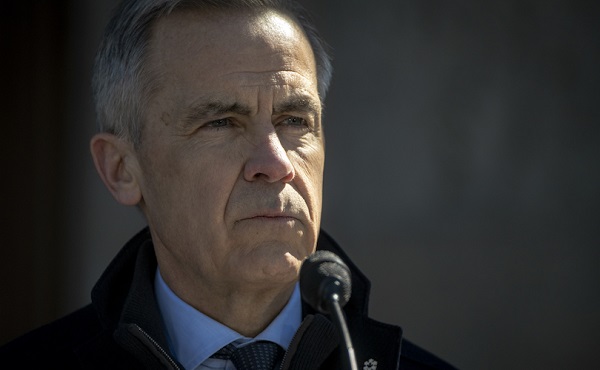
 Business1 day ago
Business1 day agoCarney’s Ethics Test: Opposition MP’s To Challenge Prime Minister’s Financial Ties to China
-

 Business2 days ago
Business2 days agoCarney Admits Deficit Will Top $61.9 Billion, Unveils New Housing Bureaucracy
-

 Business1 day ago
Business1 day agoAttrition doesn’t go far enough, taxpayers need real cuts
-

 Business1 day ago
Business1 day agoCarney government’s housing GST rebate doesn’t go far enough
-

 Alberta1 day ago
Alberta1 day agoBreak the Fences, Keep the Frontier
-

 Media1 day ago
Media1 day agoCancel culture wins ultimate victory as murder of Charlie Kirk ghoulishly celebrated by radical Left, media included




